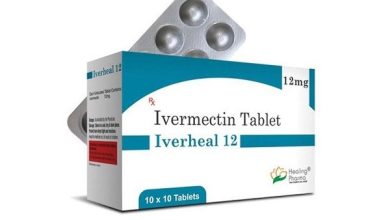
That is the reason a basic piece of my job as clinical consideration organizer in Adult Cardiac open Surgery at Michigan Medicine is to teach patients and families about what’s in store in the days and months to come.
No two patient encounters will be something similar, however there is general data you ought to know about while recuperating from this surgery.
The following are six significant things to be aware:
Your dietary patterns might change
You might see that you’ve lost your hunger or you simply feel too drained to even consider eating. This is normal, so show restraint. Your hunger will before long have returned to typical.
We recommend you take a stab at eating continuous, little dinners over the course of the day. You really want appropriate sustenance to empower your body to mend and get more grounded.
We suggest an eating routine low in fat, cholesterol and sodium and high in protein. Great wellsprings of protein incorporate fish, eggs, dairy, beans and nuts. Limit how much salt in your eating routine to 2,000 milligrams per day. Food varieties known to be high in salt incorporate café food, soups, pizza, bacon and other handled meats.
You might encounter rest issues
Many individuals whine of experiencing difficulty dozing for quite a while after heart surgery. You might encounter a sleeping disorder (a failure to rest) in view of:
- Impacts of sedation
- Uneasiness connected with mending
- Changes in your everyday daily schedule
- Stress from individual worries
- Ordinary resting designs regularly return in half a month. Up to that point, attempt these tips:
Take sufficient rest in the middle of between your typical day to day exercises — however keep away from a daytime rest longer than 20 minutes.
On the off chance that you have torment, take your aggravation drug around 30 minutes before sleep time.
Orchestrate the cushions so you can keep an agreeable position and reduction muscle strain.
In the event that you feel restless or apprehensive,open converse with your mate, accomplice or a confided in companion. Forget about your difficulties.
Stay away from caffeine (like chocolate, espresso, tea and colas open) in the nights.
Stand by listening to loosening up music or a directed symbolism sound program.
Request that your accomplice give you a back rub.
Scrub down.
Follow a sleep time routine to tell your body now is the right time to unwind and get to rest.
Dozing on your back, side or stomach is OK. You won’t hurt your cuts.
You’ll assume a key part in dealing with your aggravation
Post-careful torment is undeniable yet can be overseen in various ways. Due to ongoing public regulation changes, doctors can recommend something like a seven-day supply of narcotics to patients at the hour of their clinic release.
SEE ALSO: Want a Better Surgical Outcome? ‘Train’ Like an Athlete
Weaning yourself off narcotics straightaway is significant. You might require under a seven-day supply, contingent upon your condition. A few patients don’t need any narcotics for torment the board.
Different choices for torment the board include:
Oral and skin analgesics like acetaminophen (Tylenol) and Salonpas patches (treatments or creams ought not be applied close by cuts)
Applying a comfortable fabric to the area, utilizing alert close to the entry point since nerve responsiveness might be diminished, making the skin consume
Unwinding strategies like reflection and directed symbolism
On the off chance that you are on long haul narcotics, you ought to meet with your recommending doctor to start to wean down to the most minimal portion conceivable before open surgery.
You might feel like you’re on a profound thrill ride
Recuperating from open-heart surgery includes physical and close to home mending. The recovery interaction utilizes profound and actual energy.
On the off chance that you feel resentful or profound in the weeks after your activity, relax — this is a typical response. Numerous patients report these sentiments as long as 90 days after the activity:
Mind-set swings that might incorporate discouragement, dread, tension, forlornness, defenselessness and outrage
Crying effectively for reasons unknown
- Absence of energy or inspiration
Getting handily disappointed
Powerlessness to think
Having great days and awful days
Feeling more profound or nostalgic than typical - Despite the fact that you might feel depleted actually and inwardly, adhering to rules for good taking care of oneself is significant:
- Get dressed consistently
- Walk everyday inside your cutoff points
- Get a lot of rest
- Continue side interests and social exercises you appreciate
Visit with others
Join a care group
It’s likewise essential to have an emotionally supportive network set up that can assist with your everyday physical and profound requirements. Examining your feelings of trepidation, disappointments, torment, concerns and triumphs with somebody is a basic piece of the mending system.
Most surgery-related sensations are typical
It’s normal during the initial not many months after surgery to encounter deadness, shivering or even excessive touchiness around the chest entry point.
A few patients might encounter this just while wearing tight or constrictive dress.
SEE ALSO: Pneumonia After Open-Heart Surgery: How to Reduce the Risk
These sensations are connected with the ordinary mending cycle of the little nerves that were cut off during the surgery. As these nerves recover, they become extremely touchy and cause these side effects.
A similar hypothesis can be applied to your lower legs on the off chance that veins were reaped for a detour method. Since there is a deficiency of an enormous vein in the lower leg, you may likewise see expanding around here.
This might require some investment to determine; it’s generally expected treated safely by irregularly raising the impacted leg a couple of times each day or wearing a kind of pressure loading called thrombo-embolic obstacle (TED) hose.
In any case, it is basic to take note of that not all post-surgery chest sensations are typical. Assuming that you experience any effort related chest torment or tension, counsel your doctor right away.
Driving after surgery fluctuates by person
Patients can frequently continue driving around a month after surgery. Numerous factors are associated with this situation, and each case is a singular choice among you and your specialist.
We regularly let patients that know if they can sit in their vehicle and effectively turn the wheel to the left and right and utilize the gas and brake pedals decisively following a month of recovery time, they are likely prepared to drive.





